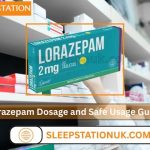Understanding Co-Occurring Disorders
Many individuals battling addiction also face underlying mental health conditions, such as anxiety, depression, or trauma-related disorders. When these two issues occur simultaneously, it is known as a co-occurring disorder or dual diagnosis. Addressing both conditions together is critical, because treating only one can hinder recovery and increase the risk of relapse.
How Integrated Programs Help
Integrated treatment programs are designed to provide comprehensive care that addresses both substance use and mental health conditions. These programs combine therapy, medical management, and holistic approaches to create a personalized plan for each individual. Evidence-based therapies such as Cognitive Behavioral Therapy (CBT), Dialectical Behavior Therapy (DBT), and mindfulness practices help patients develop coping strategies and achieve long-term stability.
Specialized Support in Houston
For those seeking Houston drug rehab, integrated programs are increasingly available to meet the needs of patients with co-occurring disorders. These programs offer individualized care plans that include medical detox, psychotherapy, group sessions, and continuous support to ensure patients have the tools to maintain sobriety while managing mental health challenges.
Options for Dallas Residents
Likewise, Dallas Drug Rehab facilities provide specialized care for individuals facing dual diagnosis. Programs in Dallas often include structured therapy, behavioral interventions, and peer support to promote healing. By treating both mental health and substance use concurrently, patients receive the guidance and resources needed to rebuild their lives effectively.
Overcoming Challenges in Dual Diagnosis Recovery
Recovering from a dual diagnosis presents unique challenges. Symptoms of mental illness can mimic addiction behaviors and vice versa, making accurate diagnosis essential. Moreover, stigma and misunderstanding about co-occurring disorders can discourage individuals from seeking treatment. Comprehensive, compassionate care that combines mental health and addiction services is the most effective path toward long-term recovery.
Conclusion
Dual diagnosis treatment offers a holistic solution for those struggling with both addiction and mental health conditions. By combining therapy, medical support, and ongoing care, these programs provide individuals with the tools they need to achieve sustained recovery. Whether accessing resources in Houston or Dallas, integrated programs offer a supportive framework to reclaim health, balance, and hope.


 The Real Cost of Ignoring Broken Window Blinds in South Florida Homes
The Real Cost of Ignoring Broken Window Blinds in South Florida Homes  Sunscreen for Different Skin Types – How to Choose the Right One
Sunscreen for Different Skin Types – How to Choose the Right One  Overcoming Addiction and Mental Health Challenges: A Fresh Approach to Recovery
Overcoming Addiction and Mental Health Challenges: A Fresh Approach to Recovery  HVAC Businesses Thrive with the Right SEO Strategy
HVAC Businesses Thrive with the Right SEO Strategy  What Is Heroin & Why It’s So Dangerous
What Is Heroin & Why It’s So Dangerous  Cheap Golf Simulators That Deliver
Cheap Golf Simulators That Deliver  Discover Flexible Classic Car Loan Options for Collectors and Enthusiasts in Mildford
Discover Flexible Classic Car Loan Options for Collectors and Enthusiasts in Mildford  Lorazepam Dosage and Safe Usage Guide
Lorazepam Dosage and Safe Usage Guide 